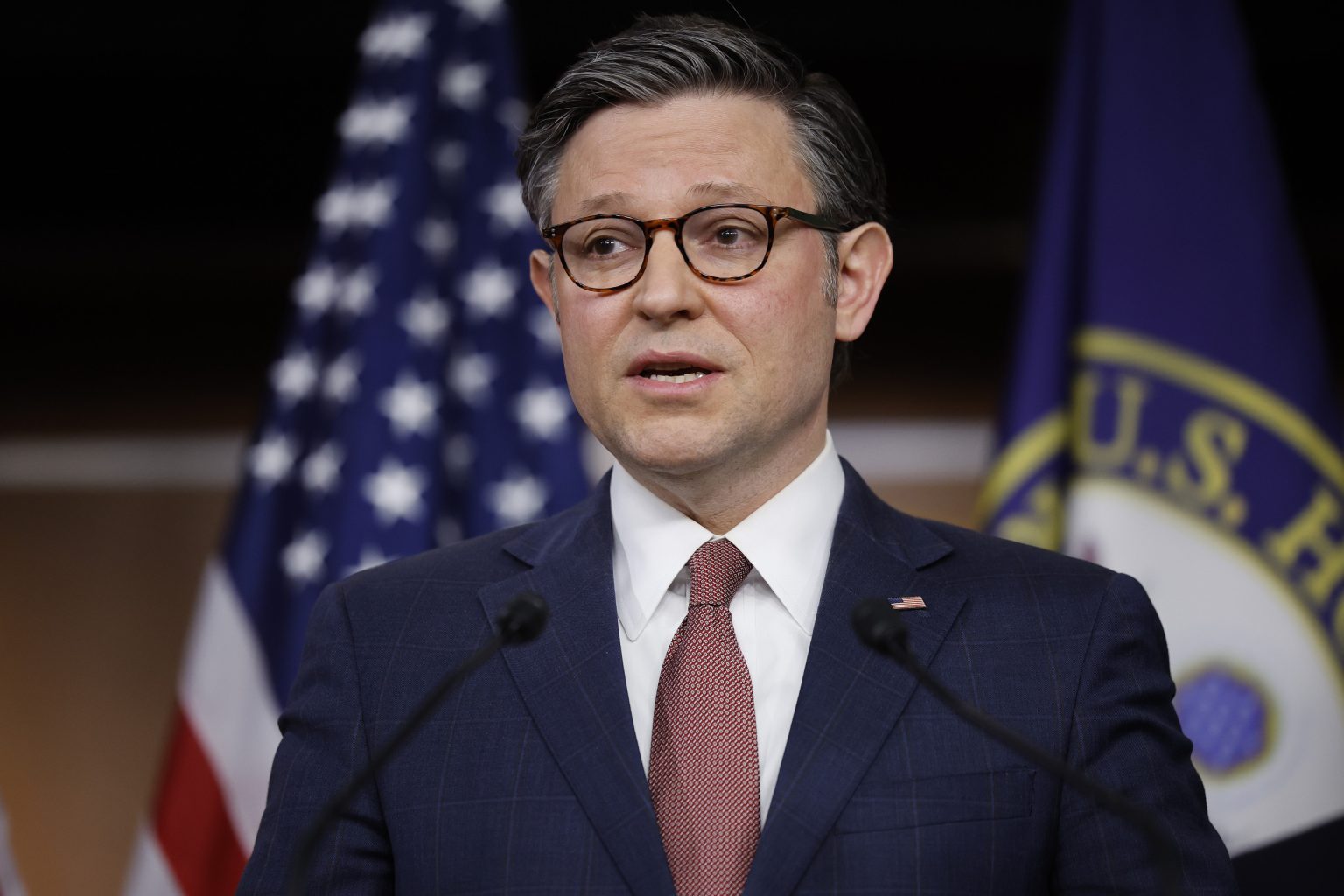In recent news, a Russian state-run media host referred to House Speaker Mike Johnson as “our Johnson” while discussing the stalling of military aid to Ukraine. Johnson, a Louisiana Republican, has been advocating for further rounds of military aid to Ukraine, a cause also supported by President Joe Biden. However, the issue has faced opposition within the Republican House caucus, with some members, like Representative Marjorie Taylor Greene, strongly opposed to continued funding for Ukraine. There are also members who want to hold off on aid until stricter border laws are passed. Johnson has been seen as stalling on aid in order to protect his position, as Greene threatened to put forward a motion to vacate the speakership if he moves forward with Ukraine aid.
Recently, Julia Davis, founder of the Russia Media Monitor watchdog group, shared a clip from a Moscow state-run news program where pundits discussed a planned meeting between Johnson and former President Donald Trump at Mar-a-Lago. One guest suggested that Trump’s influence could determine the fate of further aid to Ukraine. During the discussion, host Olga Skabeeva referred to Johnson as “our Johnson,” implying that he had a connection to Russia similar to Trump. Johnson has stated his intention to put forward a bill for further Ukraine aid funding, as well as aid for Israel and Taiwan. However, Representative Marjorie Taylor Greene accused Johnson of working for the Deep State and not listening to Republicans, calling for a new Speaker of the House.
Former President Donald Trump, the presumptive 2024 GOP nominee for president, praised Johnson’s performance after their meeting at Mar-a-Lago. Trump also suggested that any further aid for Ukraine should come in the form of a loan, an idea that has circulated among Republicans but has been met with criticism and uncertainty. National security adviser to President Biden, Jake Sullivan, warned that talking about loans rather than providing necessary cash infusion to a country like Ukraine, which is fighting for its life, could worsen their economic problems. The debate around providing aid to Ukraine continues to be a contentious issue within the Republican Party.
The potential influence of former President Donald Trump on the fate of aid to Ukraine has been a topic of discussion, as his meeting with House Speaker Mike Johnson was seen as a crucial factor. Johnson’s commitment to putting forward a bill for further Ukraine aid funding has been met with both support and criticism within the Republican Party. The issue has further highlighted the divisions within the party, with some members, like Representative Marjorie Taylor Greene, vehemently opposing continued funding for Ukraine. The debate also raises questions about the priorities and strategies of Republican leadership in addressing foreign aid and national security issues.
The implications of Russian state-run media referring to House Speaker Mike Johnson as “our Johnson” in the context of discussions about aid to Ukraine are significant. The acknowledgment of Johnson as “theirs” suggests a possible alignment or connection with Russian interests, adding a layer of complexity to the debate surrounding military aid. The discussion around aid to Ukraine is not only about the financial support for the country’s ongoing war against Russia but also about the geopolitical implications and allegiances that may influence decisions within the Republican Party. The controversy highlights the interconnectedness of domestic politics, foreign policy, and media narratives in shaping public perception and decision-making in the U.S. Congress.
In conclusion, the ongoing debate over military aid to Ukraine has revealed deep divisions within the Republican Party, with House Speaker Mike Johnson facing scrutiny and pressure from both within the party and external forces like Russian state-run media. The influence of former President Donald Trump on the issue, as well as differing opinions on the best approach to supporting Ukraine, have further complicated the discussion. The controversy surrounding Johnson’s stance on aid to Ukraine underscores the challenges of navigating foreign policy decisions in a politically charged environment. As the debate continues, it will be important to consider the broader implications of U.S. support for Ukraine and the role of leadership in shaping policies that reflect national interests and values.


